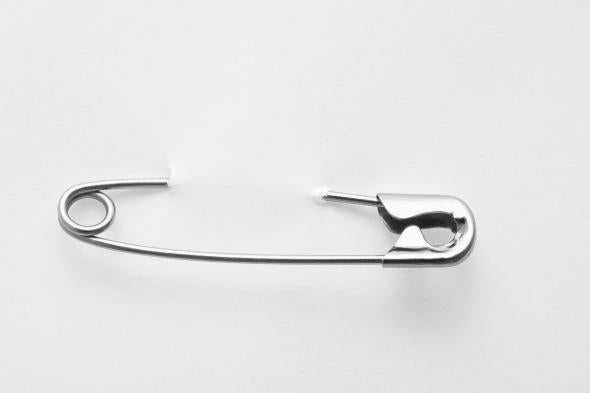In the days after the shocking Brexit vote, immigrants and people of color across Britain came under attack. “More than a hundred incidents of racial abuse and hate crime have been reported since the UK voted to leave the European Union,” the Independent reported three days after the June referendum. “Many of the alleged perpetrators cited the decision to leave the EU explicitly.” The National Police Chiefs’ Council reported a 57 percent increase in bias incidents. Bigots appeared to have been buoyed by the belief, right or wrong, that a majority shared their resentments and that social prohibitions against racism had been relaxed.
In response, people of goodwill began wearing safety pins as a symbol of solidarity with immigrants. It was a quick, easy way to show immigrants that you weren’t one of those who despise them and to show everyone else that you wouldn’t tolerate xenophobic abuse.
We need a symbol like that in the United States now. These are vicious days in America. The deplorables are emboldened. The Washington Post reports that there have already been two attacks on Muslim women on college campuses. At San Diego State University, two men ranting about Trump and Muslims robbed a student wearing hijab. At the University of Louisiana at Lafayette, a Muslim student was beaten and robbed and had her hijab torn off by two men, one in a white Make America Great Again hat. (Update, 5:05 p.m.: The Acadiana Advocate is reporting that the University of Louisiana student has admitted that she fabricated the attack.) There are reports of anti-immigrant bullying in schools all around the country; a Mexican American student in Salt Lake City reported hearing, “Hey man, you get a free trip back to Mexico, you should be happy.” In Durham, North Carolina, someone defaced two walls with the words, “Black lives don’t matter and neither does your vote.” Social media was awash with photographs of hateful graffiti and anecdotes about shocking encounters with racist strangers.
Even in the blue bubble of New York City, ugly impulses have been unleashed. Wednesday evening, a friend of mine, a heavily pregnant 37-year-old lawyer, was walking in midtown, looking down because of the rain. Out of nowhere, a white guy in a military cap yelled at her, “Hillary supporters are so sad today,” and started cackling. “Felt like a sitting duck,” my friend texted me.
Other New Yorkers, of course, have reason to feel even more vulnerable. My colleague Aymann Ismail wrote of taking the subway into Manhattan the day after Trump’s victory: “Looking out for anyone who didn’t share my complexion. Not putting on headphones, lest I make myself vulnerable. Keeping my eyes on the ground, wanting to be invisible.”
A close friend of mine, the gun reform activist Kim Parker Russell, wept after a conversation with a Muslim cab driver Wednesday night. “At least you are a white woman and they will never know how you voted,” he told her. “Me? I have to wear my skin and they will know. He will make us wear a yellow badge.”
Yesterday and today, as I walk around in this unfamiliar new country, I see people of color and wonder if they think I’m one of the 53 percent of white women who voted for Trump. I see white men and wonder if they’re one of the 63 percent who did. We need an outward sign of sympathy, a way for the majority of us who voted against fascism to recognize one another.
Five years ago, I went in for a routine ultrasound when I was 12 weeks pregnant and found out there was no heartbeat. Instead of having a baby, I learned I’d need an operation to remove something dead inside me. That sick incredulous grief, the abrupt sense of the future violently and totally altered, is the only thing I’ve ever experienced that prepared me for the feeling of Trump winning the election. Then, the only solace was in knowing I wasn’t alone; when you have a miscarriage, you quickly learn how many of those close to you have had one, too. Since the election, I’ve sobbed in the arms of people I barely knew, hugged women I’ve just met. We need one another and need to be able to see one another. I’m not usually an adopter of memes; I’m suspicious of virtue signaling and hardly ever change my Facebook avatar. But maybe a safety pin is a tiny way to make us feel less like strangers in a newly hostile land.
This piece has been updated to more accurately reflect the nature of Kim Parker Russell’s work.
